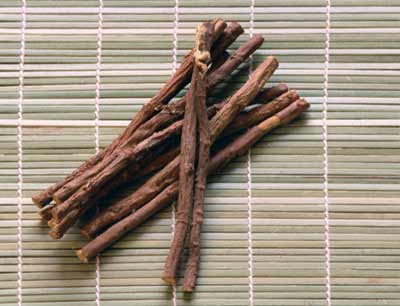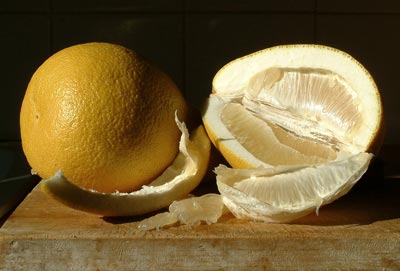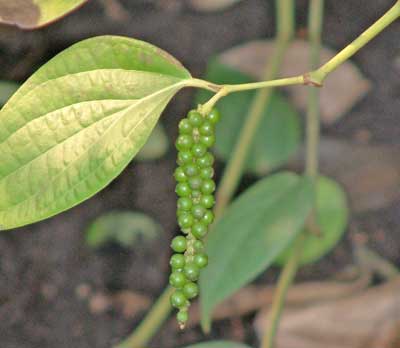Water amaranth or sessile joyweed. A type of amaranth which grows vigorously, providing nutritious greens. Use only tender new shoots as old leaves can leave a bitter taste in the mouth.

Liquorice. A sweet root with an aroma reminiscent of aniseed. Madhu generally means sweet in the Indian languages.

Pomelo. A citrus fruit similar in appearance to a grapefruit with one slightly pointed end. Once the thick skin is peeled, the segments need to have the tough leathery coating pulled away. Inside, the flesh can be deliciously sweet and juicy. It is better left for a few days after picking before it is eaten. There are pink and white versions. Is sometimes used in salads and savoury dishes.

Black peppercorns, the fruit of a perennial vine with large leaves and white flowers. Green peppercorns are the unripe fruits picked early and pickled. Black peppercorns are picked just before they ripen and white peppercorns are the ripe, black peppercorns with the black skin flaked off. They are best kept whole and ground when required. Historically, pepper was one of the world's most important spices. Columbus sailed West, not East, in search of pepper in the East Indies. Instead he found the Americas and allspice.